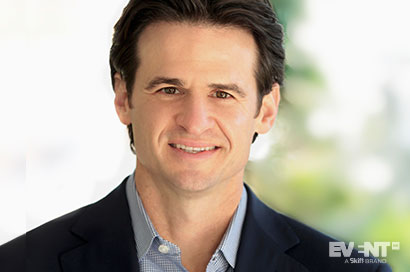Skift Take
Aventri closes a successful round of strategic fundraising to expand its virtual and hybrid event offering, proving that even event tech giants are nimble enough to pivot in response to Covid-19.
In an industry still nursing the deep cuts of Covid-19’s disastrous economic impact, event professionals have turned to technology as the sole risk-free recourse for weathering the storm. Where the industry largely shunned virtual events, they have become our salvation.
In response, event tech companies have been doubling down on their virtual event offerings, with many taking the surge in demand as an opportunity to enter a market that Dan Berger once described as perilously full of barriers. Investors have an eye on the opportunity as well, and while many larger companies have been hemorrhaging, many small companies are receiving infusions of investment lifeblood to see their products and ambitions to fruition.
At least that was the pattern unfolding before our eyes until now. Aventri’s recent announcement of a successful strategic round of equity growth breaks with that trend.
They intend to use the ‘sizeable’ newfound cashflow to make the pivot many smaller, more nimble companies have already made: developing virtual event offerings that can be parlayed into hybrid events once we return to face-to-face meetings.
The Investment
Aventri’s initial pivot to virtual was limited to integrations with Intrado and Evia, but they eventually committed to the move with the development of their own platform.
While Aventri is not disclosing the exact amount received, we sat down with CEO Jim Sharpe, who suggested that the ‘sizeable’ investments of private equity investors HGGC and Level Equity will ensure that Aventri can meet its “strategic growth initiatives, including [the] expansion of its virtual and hybrid event platform,” which has already been launched.
What Does This Mean for the Industry?
One of the most challenging aspects of the whole coronavirus situation is the sheer uncertainty involved. How long will this last? What are the conditions for reopening? What will happen once they do?
The absence of any credible, consistent action plan on the part of an authoritative or governing body leaves little in the way of encouragement. Investments in event technology in general represent both faith and understanding in an industry that routinely goes largely underestimated. While governments may not be poised to support events, investors with a mind for business understand the value of the industry and are acting accordingly.
But Sharpe readily confirms that the future is uncertain. Event professionals and investors have to be realistic about the pace of the recovery, and Sharpe believes that a significant comeback for live events could well be beyond 2021.
Optimism, Realism, or Prudence?
The fact that event tech companies like Aventri are reinforcing their virtual offerings is to be expected. As the only viable, risk-free way to host events, it would be a wasted opportunity to leave that money on the table.
What we should pay attention to, particularly given the uncertain recovery timeline, is the way they communicate and structure the value of virtual event tech around an eventual return to physical gatherings, to hybrid events.
Many of the hardest hit countries around the world are plotting their return to business events, and while you may be hard-pressed to describe a single governing logic behind their approaches, one thing is clear: everyone is feeling the strain and becoming increasingly pressured to risk a second wave for their economy.
The projected return to live events may be a little optimistic. Some have already been planned, including Web Summit in Lisbon, where restrictions have just been reintroduced as a result of having the second-highest new case count (seven-day average) in Europe after Sweden (which has virtually no restrictions).
But for event tech suppliers, this situation works. Volatility is opportunity. Having a virtual event engagement plan is something of a safety net. Planning your content around virtual delivery from the beginning and using formats that are palatable to an at-home audience will set you up with the best safety net available in case you draw the location short straw and have to cancel the physical event.
But it’s also realistic. Inevitably, the number of people allowed to gather will increase to the point where some small and local events will be possible, and hybrid events will be crucial for connecting those smaller meetings to a larger, more financially viable audience.
Whatever the actual likelihood of a comeback for physical events, promoting a hybrid future is a prudent tactic. It’s a way for event tech suppliers to make their virtual event offerings more palatable to planners who may be inclined to bide their time until the events they’re familiar with are back in business. The message: ‘Invest in learning about this now and set yourself up for a robust and successful recovery. Wait and you risk indefinitely delaying your own comeback.’
Aventri’s press release is in keeping with the trend:
“The continued partnership with HGGC and Level Equity demonstrates the growing confidence among investors and market participants that B2B meetings and events will return at record levels in 2021.”
– Jim Sharpe, CEO, Aventri
IN CONCLUSION
Among their many other benefits, virtual events represent the safest way to stay connected with audiences, and with event tech suppliers large and small investing their resources in developing virtual event solutions, we can expect richer engagement and better monetization opportunities in the coming months.
And with Aventri’s recent announcement, it seems event tech giants are going to be able to put their weight behind the movement to virtual as well. Fortunately, it seems we can count on private support even where government support may be lacking.
Whether we can take this as a vote of confidence in live physical events or as a welcome boost in our virtual options, event professionals in the midst of a pandemic should treat every piece of good news as a glimmer of hope.





